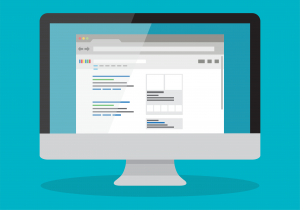
So, you already know the importance of a good property website, but you’re unsure of what the costs will be. Just like cars, websites come in many different styles and price points, ranging from your basic templated small page site to a custom built, fancy multi-page site decked with all the bells and whistles. And, while website costs are hugely influenced by the level of “flashiness” that’s created, it’s what’s behind said flashiness, or the back end of the site, that will determine how much you pay.
While, ultimately, your budget will determine the level of intricacy of your new site, here are some of the costs you can expect to pay when venturing down the route of a professionally designed custom website.
-
Setup
The first move your designer will likely make will be to secure your domain name. Standard domain pricing will typically range from $10 to $50 annually; however, if you prefer a custom extension, like .apartment or .online, etc., costs could increase to an upwards of $300 per year. The next step in your website build will be finding a hosting provider, which is where your website will be housed online. Hosting costs vary based on the amount of and with your site’s using, but could range from $10 a month to $100+ per month for small to mid-sized properties.
You’ll also want to secure your site through an SSL (secure socket layer) certificate which will ensure that your renters’ information remains safe and secure from interception. These costs are charged annually, and will usually range from $10 to $100.
-
Responsive design
Responsive site designs can come in the form of totally custom, built-from-scratch designs, which are usually charged by the hour, or tweaks to standard templates, which average between $500 and $2,000. Costs will of course vary based on the number of features, like logo/imagery placement, navigation, framework etc. Those who want to completely set their property apart from the competition and tend to favor the “bells and whistles,” can typically purchase a built-from-scratch design from $5,000 to $15,000 on up–all based on the depth of your site and business.
-
Content
Once the site’s framework is designed, content is soon to follow. You’ll need to first determine if you will have the time to curate your own content and imagery or prefer to outsource it. Your designer will usually partner with a copywriter who will, upon learning all there is to know about your property, strategically draft content for each of your pages to best capture your prospects while on your site. Copywriting costs can range from $.05 per word to $50 per page. If you’ll need professional photos taken for your new site, you can expect to chalk up an additional $500 to $2,000 for just enough property photos to populate your pages.
-
SEO
The inclusion of SEO is a feature that should be standard when building a website. After all, you want your prospects to find your site to experience it first hand. SEO costs will likely vary, but you can expect to pay between $2,000 to $5,000 upfront, and a monthly maintenance charge of up to $1,000. The larger your property, the more you can expect to pay.
-
Rental software
In addition to your standard website features, you may also want to invest in property management software that integrates with your new website. While there are tons of companies and products that will do this for you, by assessing your rental needs and budget, you can better determine which features are most essential for your property. For instance, if you’d like to take applications, maintenance requests and/or rental payments online, then you’ll want to choose your package wisely. Pricing for this software will average from $1 to $2 per unit to a monthly minimum of about $250.
-
Maintenance
So, your beautiful website has finally been created and launched; but, you’re still not out of the woods yet when it comes to expenses. In addition to regular updates to your site’s content, you’ll also need to leverage your web designer for upgrades to the framework, plug-ins, extensions, and more. These services will typically run you about $100 per hour.
Rentbot can help.
Simply put, websites can be pretty expensive, which is an understatement for small, multifamily properties. That’s where Rentbot comes in. We create mobile-friendly websites for property managers and owners equipped with unlimited personal admin support, fast and secure hosting, and built-in SEO for less than half the cost of a traditional custom website build. In a matter of days, we’ll provide you with a custom, turnkey site for your property that is guaranteed to attract more leads, create higher conversions and retention than before. And, with multifamily features like online payments, applications, maintenance requests and real-time availability, we’ll save you even more on the back-end, avoiding the need for you to invest in a separate software system.
It’s time to give your budget something to smile about. Give Rentbot a try for your high-performance website needs, and, if we don’t meet your expectations within the first 60 days, you’ll receive a full refund–no strings attached. Schedule a call with us today to begin your new website journey.
About the Author
Jonsette Calloway joined the Rentbot team in 2015. With a background in public relations, advertising and copywriting, she has helped a multitude of clients achieve their marketing and communications goals within various fields, but she particularly enjoys working with the apartment industry.










